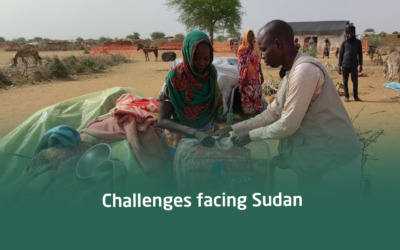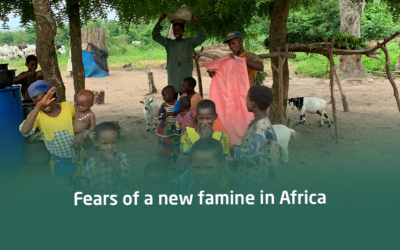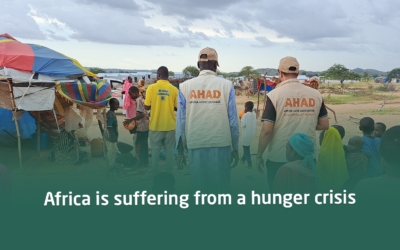Children’s health in Africa
The health of children in Africa is a major challenge facing governments and NGOs alike. Despite the progress made by many African countries in various areas, there are still significant challenges affecting the health and well-being of children. These challenges include infectious diseases, malnutrition, poverty, and lack of health care
Health challenges facing children in Africa
Infectious diseases
1.Malaria
– Malaria is transmitted by bites of mosquitoes infected with Plasmodium parasites. These parasites infect the liver and spread into the blood, causing severe symptoms such as fever, chills, sweating, and severe anemia. Children under the age of five are most susceptible to malaria due to their weakened immune system.
– In 2019, malaria caused the death of about 260 thousand children under the age of five in Africa. Current malaria control efforts include the distribution of insecticide-treated mosquito nets, and the provision of antimalarial drugs such as artemisinin.
2. Aids/human immunodeficiency virus (HIV / AIDS)
– HIV attacks the immune system, making the body unable to fight diseases and infections. Children may contract the virus from their infected mothers during pregnancy, childbirth, or breastfeeding.
– Despite advances in antiretroviral therapies, there are still a large number of children infected with the virus in Africa. Preventive programs include early pregnancy tests for mothers, and the provision of antiretroviral therapy to prevent mother-to-child transmission of the virus.
3.Respiratory diseases and diarrhea
– Pneumonia and other respiratory diseases are major causes of mortality among children, due to a weakened immune system and malnutrition. Diarrhea, often as a result of water pollution and poor sanitation, can lead to severe dehydration and death.
– The World Health Organization estimates that pneumonia and diarrhea contribute significantly to the mortality of children under the age of five. Improving access to clean water and sanitation, and providing antibiotics and compensatory salts (ORS) to treat dehydration are key strategies to reduce these deaths.
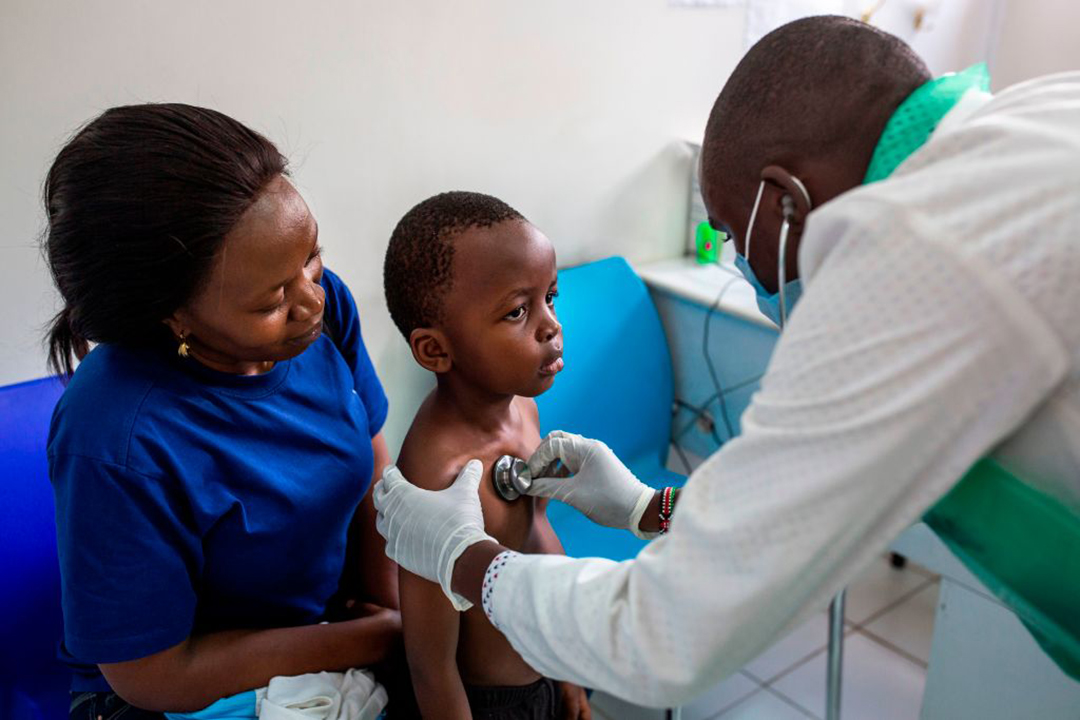
Malnutrition
– Malnutrition can be acute or chronic, affect the physical and mental development of children. A lack of essential nutrients such as proteins, vitamins, and minerals can lead to stunted growth (stunting), general weakness, and increased susceptibility to disease.
– More than a third of children in Africa suffer from stunted growth due to lack of nutrition. Solutions include school feeding programs, distribution of dietary supplements, educating mothers about proper nutrition and improving breastfeeding.
Poverty and lack of health care
– Many children in Africa live in conditions of extreme poverty, preventing them from accessing basic health services, education and clean water. This lack of resources leads to the spread of diseases and the deterioration of the general state of Health.
– A large percentage of the population lives below the poverty line, which affects all aspects of their life, including health. Efforts to improve the situation include the construction of new health facilities in rural areas, the training of local health personnel, and increased funding for primary health care.
Efforts to improve
Despite these significant challenges, there are ongoing efforts to improve children’s health in Africa. These efforts include:
Vaccination programs
– Vaccination campaigns against measles, polio, hepatitis. These programs have led to a significant reduction in the incidence of these diseases.
– Thanks to these efforts, polio has been eradicated in many African countries, and measles cases have significantly decreased.
Improving primary health care
– Establishing health centers in remote areas, training local health workers, and providing essential medicines.
– Increased access to basic health care has contributed to improved diagnosis and early treatment of diseases.
Combating malnutrition
– School feeding programs, distribution of vitamin and mineral supplements, and promotion of sound nutritional practices among families.
– These efforts have contributed to improving the physical and mental development of children and reducing malnutrition rates.
Child Health in Africa is a complex challenge that requires international cooperation and integrated efforts of local governments and international organizations. By strengthening health programs and improving living conditions, we can hope for a better future for the children of Africa. The top priority remains to ensure that every child receives his or her right to life, health and education, paving the way for healthy and prosperous societies in the future.
Efforts to improve children’s health in Africa
Vaccination programs
– Vaccination programs are aimed at protecting children from vaccine-preventable diseases, such as measles, polio, hepatitis and others. These programs are considered one of the most cost-effective health interventions, and contribute significantly to reducing mortality and morbidity rates.
Examples of successes
– Measles is a dangerous viral disease that affects children. Thanks to extensive vaccination programs, cases of quota infection have significantly decreased in many African countries.
– Great efforts have been made to eradicate polio, and as a result of these efforts, many African countries have been declared free of this disease.
Challenges to vaccination programs included reaching remote areas, overcoming beliefs and misinformation about vaccines.
Improving primary health care
– These initiatives aim to improve access to basic health care, especially in rural and remote areas that suffer from an acute shortage of Health Services. These efforts include the construction of health centers, the provision of medicines and medical supplies, and the training of health workers.
Examples of initiatives
– The establishment of new health centers in remote areas to provide primary health care to the local population. These centers provide services such as vaccination, antenatal care, treatment of common diseases.
– Training local health cadres to provide basic health care, diagnose and treat diseases, and provide health advice to the community.
Challenges include a lack of funding, the constant need for training and continuous development of health workers, as well as the need to provide equipment and medicines sustainably.
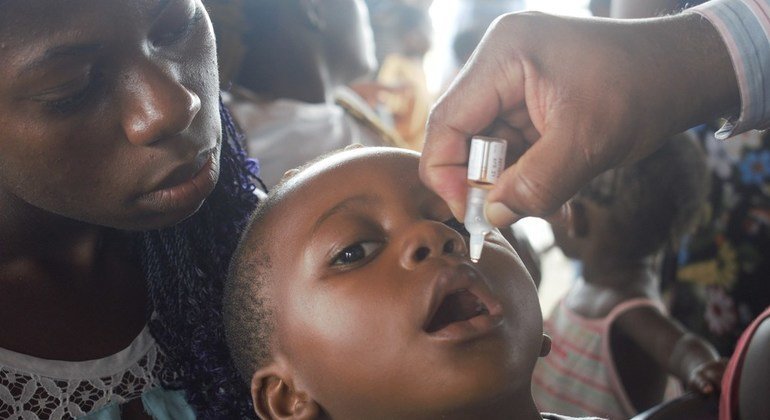
Combating malnutrition
– These programs seek to improve the nutritional status of children by providing nutritional support and educating families about the importance of proper nutrition. Malnutrition is one of the most prominent challenges affecting children’s development and overall health.
Examples of initiatives
– Provide balanced meals for children in schools, which helps in improving their health and academic condition. Such meals contribute to the satisfaction of a significant part of the daily nutritional needs of children.
– NGOs and governments are working to provide the necessary nutritional supplements and educate families about the importance of balanced nutrition and breastfeeding.
The main challenges include limited resources and funding, difficult access to remote areas, and the need to change unhealthy behaviors and eating habits among communities.
Improving children’s health in Africa requires integrated cooperation between governments, international organizations and civil society. By strengthening vaccination programs, improving primary health care, and combating malnutrition, tangible progress can be made in improving the health and well-being of children in Africa. The top priority remains to ensure that every child receives his or her right to health and education, paving the way for a brighter and more sustainable future for the continent.
The role of AHAD in improving children’s health in Africa
AHAD plays an important role in improving children’s health in Africa through a variety of programs and initiatives focused on providing health care, promoting proper nutrition, and fighting infectious diseases.
Through these activities and programs, AHAD contributes significantly to the improvement of children’s health in Africa. The association not only focuses on providing direct health care, but also works to build local capacities and promote health awareness among communities. This holistic approach helps in achieving sustainable improvements in the overall health of children and families in the targeted areas.
You can visit the AHAD website to find out more about the projects it offers
ALSO READ
WHAT THE FOOD BASKET CONTAINS IN AHAD
Join us in our message


